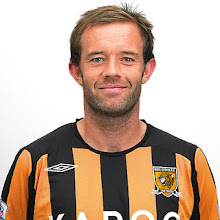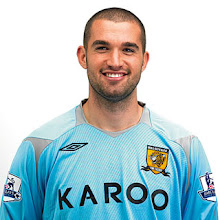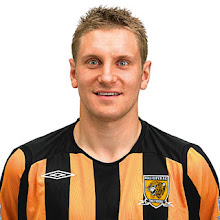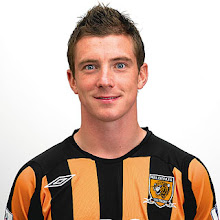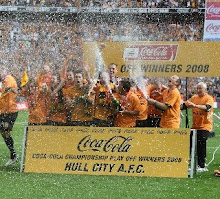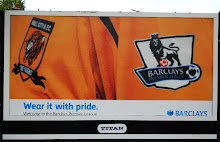
There's no harm in being taught the odd lesson. The achievement surrounding City's fixture against Chelsea was more summed up by the position each club was in prior to kick-off, rather than the result 90 minutes later.
That's the positive spin. The less cynical would claim that Chelsea were utterly brilliant and City chased shadows for the majority of the match.
Little can spark complaint, given the amazing feats of the Tigers thus far. It has been beyond everybody's expectations, and at least the expression "reality check" can be applied only half-heartedly, as Chelsea are as capable of doing this to any club in the Premier League if they fancy it. This was no
Wigan Mk II.
The only mild slice of disappointment was that although the two teams were equal going into the match, there was next to no chance of City trying to match their illustrious opposition as equals once the action started - thanks to a piece of undisputed genius from a fine footballer after a mere two minutes.
Frank Lampard's goal may have been a fluke. It may also have been simply stunning vision and improvisation. I go for the latter, as although the ball reached him on the left corner of the penalty area fortuitously - his initial ball to the chasing Florent Malouda had been deflected straight back to him - the breathtaking, left-footed chip which he instantly dispatched across the box and over Boaz Myhill was a work of top-drawer artistry that only the sublimely gifted footballer can attempt and execute.
Immediately, City were on the back foot. This was hardly fair, but it was Chelsea, after all. They'd been stung at the weekend and the last thing they wanted was to be made to feel awkward by a team of northern upstarts with little history for anything other than being laughed at. They had their wish. The goal not only earned them a priceless early lead, it knocked the stuffing out of City for a good 20 minutes.
Phil Brown had written this game off, sneakily, in his post-match interviews following the
West Brom game. We had 20 points from nine games, and he announced that 20 from ten would be an excellent return. Clever man. It was clear that City weren't going to get 23 points from ten, or probably even 21. Chelsea proceeded to utterly dominate the ball, play simple and effective passing sequences and occasionally deliver an eye-catching pass of fizz and precision which reminded every optimist in black and amber why they were who they were.
City, with the same XI as had become the norm (
Andy Dawson made a remarkably quick recovery from a dead leg when he had been entirely ruled out 48 hours ago), did make a few bits happen. A corner was forced and, with the knowledge that our success at set-pieces was largely the way forward against Chelsea, hopes were raised. Dawson delivered and
Michael Turner climbed impressively above John Terry but the header landed on the roof of Petr Cech's net.
Geovanni then got his best sniff of a spectacular response but inexplicably chose not to shoot when Chelsea showed him inside on to his trusty right. Instead, he tried to beat one man too many - and ended up diving, in as unconvincing a manner as it is possible to display. Even Joe Cole, on the opposite side and prone to the odd spot of flying fakery himself, must have found the gall to protest at that one.
Myhill, nervous after losing a goal so early (one awfully sliced clearance proved this), pouched a shot from Joe Cole with conviction after Nicolas Anelka's cross deflected back to the England man, then Lampard bashed a swerving, unpredictable free-kick from 30 yards only just wide.
City had begun to up their game, as if the realisation that they were playing mere humans had just hit home (though Jonathan Pearce's typically-melodramatic claim, in both meaning and tone, that they were "starstruck" was one of the most nauseating and patronising things I've heard - why do the BBC employ this man?), and the quiet Marlon King was very unlucky to be flagged offside as he seemed to time a run on to
Kamil Zayatte's searching ball with expert precision.
Malouda, whose contribution to Chelsea seems to consist entirely of fluffing straightforward chances, contrived to miss the first of many when he headed well off-target from a Deco cross, getting his angles severely wrong. The industrious Anelka, wearing gloves on a night far less chilly than the Hull public had hoped for (see also Deco and Jon Obi Mikel for this), then struck a shot just wide when Deco, again, had supplied the ammunition.
On 21 minutes, City came the closest they would ever come.
Daniel Cousin, the third part of a three-pronged strikerforce and easily the most overshadowed, came into his own with a strong, purposeful run across Terry and Ricardo Carvalho. He wasn't even distracted by Cech's flourescent orange strip, the sort that would guarantee a nocturnal cyclist a high degree of safety against even the most myopic of drivers, as he drove a low, curling shot beyond the high-calibre keeper and, so unluckily, away off the foot of a post.
A 1-1 scoreline at this point would have been delicious and, without any doubt at all, would have made it extremely interesting. But it was not to be. City barely troubled Cech again.
Geovanni, ludicrously but without protest from his manager or captain, then smacked a free kick at Cech which was closer to the centre circle than the penalty area. We were looking at 40 yards or so. It's a confident (or perhaps reckless, or perhaps deluded) chap who believes he can outfox the world's best goalkeeper from such a range, but the luminous custodian did nevertheless was required to perform an inelegant beating away motion to keep the ball from his net.
Time for Malouda to miss again. His snapshot went high over the bar after Zayatte's poor clearance, and then he did likewise a few minutes later; this time he got a toe-end to a cross from a sharp counter attack but again missed the target.
Chelsea looked like they could score again anytime. They weren't quite playing with City, not teasing them as such, but they certainly had that air of taking everything in their stride and maintaining their professionalism until the time was right to punish their hosts again. Anelka thought he'd done it when he hit a vicious drive after exquisite build-up involving Lampard and the two Coles, but Myhill got a deft fingertip to the ball and it was enough to send it above the bar.
Malouda then shot wide. Again. Although his time would ultimately come, it is clear that he is a weak link in a super-strength Chelsea unit. He has his uses away from goal, but ultimately his finishing is poor for a man so obviously primed by the Chelsea tactical plan to get into these far-flung positions on the field.
City had two late goes before half-time; Geovanni's hit a free kick more within range which Cech spilled and Carvalho cleared; then King headed Dawson's sweeping cross straight at the vividly-clothed stopper.
So, just the one goal conceded as the players trooped off at the break. A glorious, unpreventable goal it was too. So City were just one piece of world-class football adrift of their world-class footballing opponents. It seemed healthy enough.
Sadly, the game plan for the second half was shattered by some dreadful incommunicado from Myhill and his centre backs just five minutes into the second half. A long, low ball towards the edge of the box; both Zayatte and Turner try to shepherd it to the keeper, believing Myhill would be haring from his goal-line to kick it clear. Or perhaps they misjudged the pace of the ball and expected it to drift into the area for Myhill to collect. Neither applied in the end, as Anelka nipped between them all and, although his touch which thieved the ball took him mildly wide, his instant left-foot shot was never going to go anywhere but the net.
Who was to blame? Myhill certainly could have put his boot through it, but equally the central defenders were both in a position to stop Anelka sniffing around it. They can all take a share. Utterly crestfallen now. Two goals down, thanks to the unplayable and the unspeakable. In both halves of the match City had started with the wobblies, and Chelsea are the last side one should be wobbly against.
Still, hope remained that a goal for the Tigers could at least arouse interest in the rest of the match. For as long as Malouda was getting the bulk of Chelsea's chances, a third goal for the visitors looked less likely. He soon missed again after some divine, slick interplay between Deco, Lampard and Anelka gave him a chance not just on a plate, but with knife and fork, napkin and choice of condiments.
Brown made a change, opting for width as he withdrew the overrun George Boateng and threw Peter Halmosi on, clearly allowing the Hungarian a chance to earn himself a start at Manchester United on Saturday with a midfield reshuffle in order thanks to
Ian Ashbee's suspension. Halmosi instantly pleaded for the ball and showed some bits of mild sparkle within a side clearly demoralised by their own misfortune.
A free-kick.
Dean Marney takes and Turner wins the header but it strikes a Chelsea shoulder and flies over.
Richard Garcia, presumably with the same brief as Halmosi, is then introduced for Marney, who was given the supporters' man of the match despite a rather humdrum display, an assessment you could levy at the whole midfield and pretty much the rest of the team.
Chelsea fancy a third now. Ashley Cole, booed throughout due to a mixture of tiresome fan trends and the player's own odiousness, crossed dangerously for Lampard to gently guide down into an Anelka's path, but the ball gets trapped a little beneath his studs and the shot is half-hit enough for Myhill to save.
But the third soon comes and, gadzooks, it's Malouda who scores it. As players remain upfield after a Chelsea corner, the second attack allows Ashley Cole to feed Carvalho down the left - that's Carvalho, centre back, down the left - and he bends a cross with the outside of his right foot in a way which totally belies his usual task on the field. Malouda is there to steer it past an exposed Myhill from six yards. He finally has his goal, but boy, is he wasteful. Chelsea must never rely on him to score in tighter games when only one goal might win it.
Cousin, probably City's real man of the match on a night when glory didn't shower itself on anyone dressed in stripes, headed a decent chance over from Garcia's clever overlap after Geovanni had been initially unable to bring the ball down into a shooting position. With little to play for other than the rule that games must last at least 90 minutes, Brown decided that
Dean Windass might raise the crowd's deflated spirit, chucking him on for the surprisingly despondent King. It's only his second Premier League appearance, but the decision to give him a place on the bench instead of
Caleb Folan might be significant. It also might not be, of course.
Windass got a few touches and City had some reasonable possession as the final minutes ticked on by. Chelsea had done their job and done it devastatingly. They merely wished now to maintain a clean sheet, although a consolation should have come City's way when Dawson delivered a typically accurate injury-time corner on to the free head of Garcia, who promptly put it wide.
Full time, and anyone who suggests a bubble has been popped should be flayed publicly. This wasn't Wigan, it was Chelsea. Despite the bravado of the chairman on national media outlets prior to the game, it was clearly a no-go game. Saturday probably will be too, and that factor, along with Ashbee's suspension, suggests Brown can do a spot of tinkering with the team to provide hope for the peripheral figures. The goal difference is at least neutral, not negative again, and after Old Trafford there then comes a serious sequence of back-to-business fixtures, with Bolton Wanderers, Manchester City, Portsmouth and Stoke City all providing the opposition in November.
Hull City: Myhill, McShane, Turner, Zayatte, Dawson, Marney (Garcia 71), Ashbee, Boateng (Halmosi 62), Geovanni, King (Windass 84), Cousin. Subs not used: Duke, Hughes, Mendy, Ricketts.
Chelsea: Cech, Bosingwa (Ivanovic 86), Carvalho, Terry, Ashley Cole, Deco (Kalou 78), Mikel, Lampard, Joe Cole (Belletti 54), Anelka, Malouda. Subs not used: Cudicini, Di Santo, Bridge, Alex.















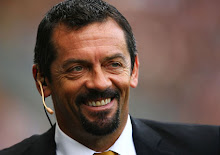

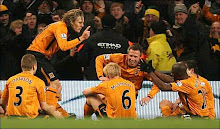.jpg)
